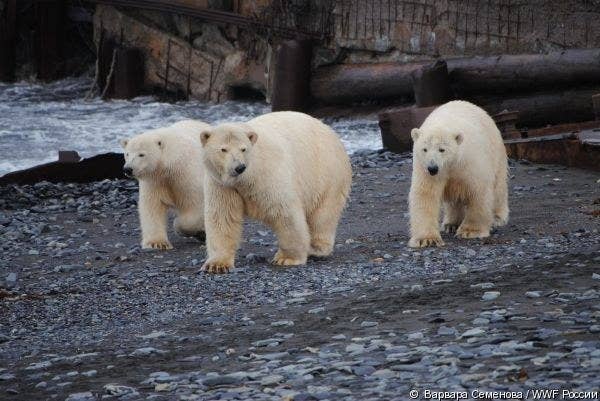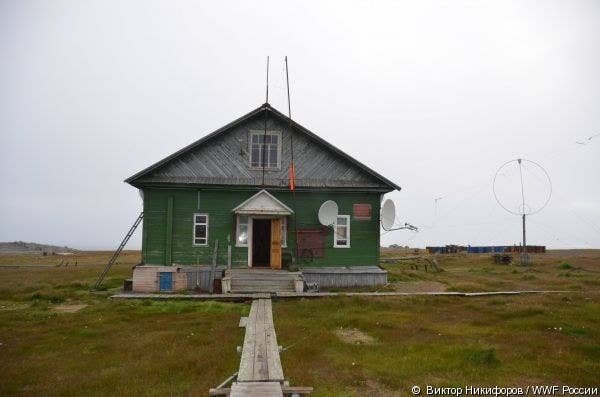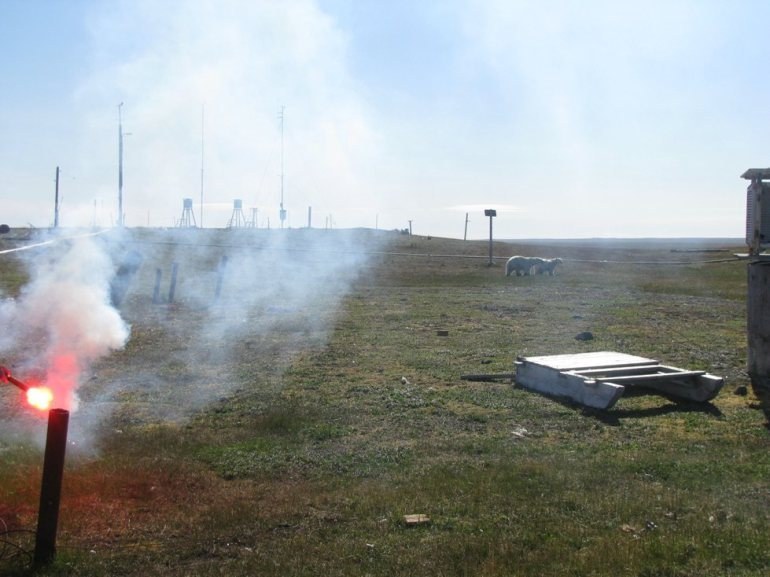
A team of researchers in Russia's far north have received reinforcements as they enter their second week under siege by a group of five polar bears that appear to be in desperate search of food.
The polar bears first overtook the Fyodorov weather station on Vaygach Island roughly a week ago, interrupting research and prompting calls for assistance from state authorities.
Having already used their flares and rubber bullets, two meteorologists and one engineer had no more weapons "nor the means to deter bears," according to a statement from the World Wide Fund for Nature in Russia.
In an email to BuzzFeed News Thursday, the WWF said the station will now house four people and has been sent flares and small pocket pistols via helicopter. But by law, the team is not allowed to have lethal weapons, even for self-defense.

Meanwhile, until the polar bears clear the area, staff at the station have been ordered "not to leave the building to collect information," Alexander Driker, deputy head of the Northern Hydrometeorology Service, said in a statement.
The proximity of the bears has posed a dangerous problem for the scientists, who need to travel several hundred meters to measure water temperatures in the Arctic sea twice a day. That data is then transmitted once they return.
One of the meteorologists told WWF "Bear Patrol" manager Viktor Nikiforov that fights over food have broken out among the large white bears, who have been sleeping nearby the buildings. He also warned that the station area is not fenced in and the team members have no way to scare off the bears, which appear to be driven by hunger amid the absence of sea ice they rely on to hunt.
"Polar bears hunt seals on the ice in the sea," Driker said, adding that for the bears to be on the shoreline means that they are fighting starvation.
The bears are not expected to leave the station until the sea ice starts to return in November.
"The smell of food and food waste attract them to human habitation," Driker said.

The team's predicament comes amid a renewed focus on climate change and the impact it will have on the Arctic. On Wednesday, President Obama — who has taken heat for approving Royal Dutch Shell's application to drill in untouched waters off Alaska's northwest coast — became the first sitting U.S. president to venture into the Arctic region of state as part of a tour meant to highlight the on-the-ground effects of a changing the climate.

A big part of that change, according to an upcoming report from the U.S. Geological Survey, will be the loss of usable habitat for polar bears, which depend on sea ice to move and track their main prey, seals.
With less ice to bridge between zones, the bears are either isolated on tundras, which aren't as productive, or have to swim for extended distances. If nothing is done to reverse possible scenarios outlined in the report, scientists warn that the global polar bear population — estimated at about 8,500 — could start to see significant trouble.
